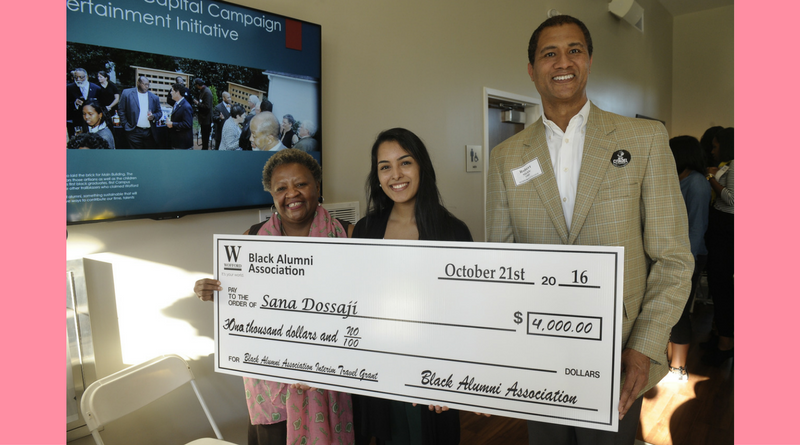By: Steele Smith, Staff Writer
The Black Alumni Summit that took place during Homecoming Weekend sparked heated discussion between alumni and school administration. The summit’s purpose was to give President Samhat and other cabinet members the opportunity to share the college’s vision for the improvement of racial and ethnic relations as well as inclusion on campus.
This year, Provost Mike Sosulski, Dean Bigger, and some of the other administration joined Samhat to discuss the school’s current racial climate and what they are doing to promote diversity. The event was a forum where the alumni present posed different questions.
According to junior Timothy Lindsey, a key point of discussion was how clubs on campus that facilitate discussions of race and diversity can gain more support. He noted that though all the American Multicultural Association (AMS) organizations are currently active, they often struggle to draw in people for programs on campus.
Sophomore Alex Burgess says the lack of support is related to “the culture of this school.” She asserts that the campus in general has relatively lackluster and unsuccessful efforts to improve the experience of African-American students.
Burgess’s feeling were shared by alumni at the summit. Lindsey notes that they pressed the issue of diversity in faculty and administration, questioning what the school is doing to recruit different candidates from different places to make Wofford a more diverse place. The alumni emphasized that the school cannot recruit more students of color without having faculty who are representative of those students.
“There was mention of how out of the three black faculty members, two of them are alumni- Dr. Bethea and Dr. Hill,” says Lindsey. He feels that having alumni faculty is a good thing, but doesn’t aid in drawing in other black candidates for positions. In his opinion, it creates an appearance of an exclusive professional environment that outsiders are not able to penetrate.
“Black professors in the past- they don’t stay for more than two or three years. Why is it that they don’t stay? What kind of atmosphere is on this campus, where only the alumni are here for an extended period of time?” questions Burgess.
She expresses her grievance with the administration’s creation of the ‘diverse’ category in which they place all non-white people. “They will say, ‘Oh we’re so diverse. We have so-and-so many black people, so-and-so many Chinese people, we’re so diverse. We include everybody.’ But they only say that when they need to look diverse,” she says. “In reality, none of that is true. I’m in class and I’m the only black person.”
Burgess says Provost Sosulski’s response to alumni was “excited and full of passion to foster change.” He asked them to help him and the administrative team write ads for the nine new faculty positions Wofford is currently looking to fill.
“[The black alumni] offered their services, but I don’t know if he got their information,” said Burgess, alluding to the suspicion that though many conversations are held about improving diversity, nothing is ever followed through.
She feels that the experiences of black people on campus are lost under the broad umbrella term ‘diversity.’ “From a black person’s perspective, diversity doesn’t do anything for us because diversity includes everything,” says Burgess. “So when the nine professors are hired, how many of them will actually be black?”
While addressing diversity on campus is important, black students don’t consider it the same thing as addressing critical lack of representation for black students and faculty specifically.
“We are the largest minority on campus, but they still don’t give us that recognition” says Burgess. “Why is it that the National Pan Hellenic Council (NPHC), the council that manages all the African-American fraternities, and the Association of Multicultural Students (AMS) share a house in the Greek village when it could be separated?” she asks.
Burgess says that grouping together the African-American experience with so many other ethnic experiences is not beneficial. “Our relationship to America is different from any other ethnic group. They chose to immigrate and assimilate into this country and its culture. We were not given the opportunity to choose America. We were brought here by force,” she says.
Lindsey says, “Hopefully, we can all work together,” in regards to his expectations of the administration and its actions in the near future. However, the path to creating a better campus seems winding.






























